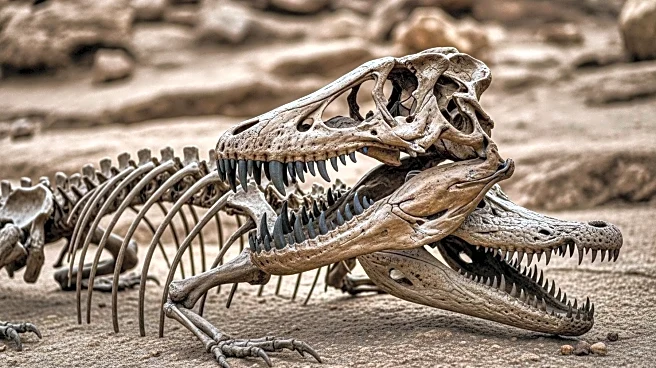What's Happening?
A new dinosaur species, Joaquinraptor casali, has been discovered in Patagonia, Argentina, with a crocodile's leg found in its jaws. This megaraptor species lived approximately 66 million years ago, just before the extinction of non-avian dinosaurs. The fossil includes a near-complete skull and other skeletal parts, providing insights into its predatory nature and physical characteristics.
Why It's Important?
The discovery of Joaquinraptor casali offers significant insights into the biodiversity and ecological dynamics of the Cretaceous period. This finding enhances understanding of predator-prey relationships and the evolutionary history of megaraptors. The research contributes to paleontology by expanding knowledge of dinosaur species and their interactions with other ancient creatures.
What's Next?
Further analysis of the fossil may reveal more about the dinosaur's diet and behavior, potentially leading to new theories about megaraptor ecology. Researchers might continue to explore the site for additional fossils, enhancing the scientific community's understanding of the region's prehistoric environment. The study could inspire future paleontological expeditions and research initiatives.










